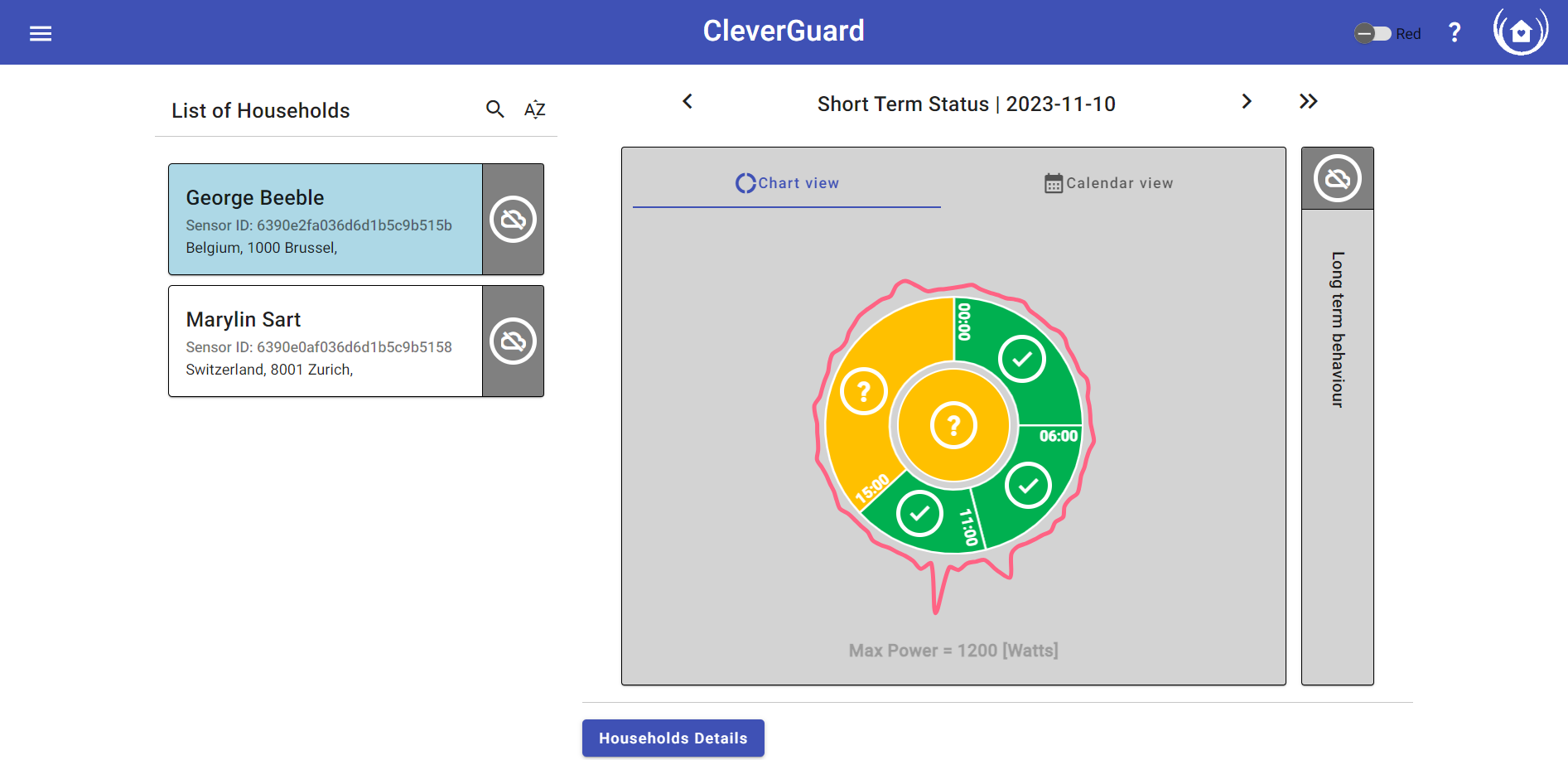
In old age, changes often occur gradually and can be difficult to recognize in time. A promising tool that could help here is the web app "CleverGuard," developed as part of the European AAL (Active Assisted Living) program at the iHomeLab of Lucerne University of Applied Sciences and Arts in close collaboration with CLEMAP. This innovative application uses advanced technology to identify changes in the behavior of older people based on electricity consumption data.
Family members and caregivers often face the challenge of noticing subtle changes in the behavior of their elderly relatives or those in their care. Whether it's the onset of health problems or an imperceptible shift in daily routines, these subtle signs can easily be overlooked. Concerns are often heightened when parents live far away: Are they still safe and independent at home?
The solution is based on a CLEMAP Energy Monitor, which is installed in the fuse box and monitors electricity consumption down to the minute. The collected data is encrypted and anonymized before being transferred to external servers. There, it is analyzed to identify patterns and deviations in electricity consumption. This information is then visualized in a user-friendly web app that gives relatives and caregivers a clear overview of whether and how behavior has changed compared to previous periods.
The main purpose of CleverGuard is not to make diagnoses, but to serve as a catalyst for valuable conversations. The graphical representation of the data can encourage family members and caregivers to address changes that they might otherwise have overlooked. These conversations can help improve the quality of care and increase the safety of older adults by responding to changing needs in a timely manner.
While CleverGuard has already been successfully tested in some environments, it is also clear that the application is not universally applicable. Active older people who structure their days differently may exhibit patterns in electricity consumption that do not indicate changes in health. Nevertheless, the technology remains particularly valuable for people who are transitioning from active to more frail old age, as well as for care facilities that enable partially independent living.
The developers of CleverGuard see many opportunities for further developing this technology. Future research projects could help to expand its areas of application and further improve the accuracy of behavioral analysis. In the long term, CleverGuard could not only improve the quality of care, but also set new standards for the care of older people.
Overall, CleverGuard represents a significant step toward preventive care and safety for older people by using innovative technology to detect subtle changes in behavior and draw attention to them. This could not only improve the quality of life for those affected, but also offer their relatives and caregivers greater security and peace of mind.